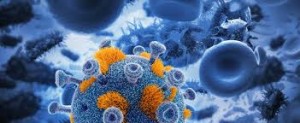Many of you are probably fully aware of how immuno-oncology is changing cancer treatment. Ken Burns highlighted immunotherapy in his recent PBS series, “Cancer: The Emperor of All Maladies” (video link here). Forbes’ Matthew Herper, BBC and others have written extensively about it, too (here, here). More recently, Genome Magazine had a feature article on the history of immunotherapy (here). As the article states: “The promise of immunotherapy is startling in its simplicity: With a little help from cancer doctors, the patients will cure themselves.”
The key word here is “cure”. Cure!
The purpose of this blog is two-fold: (1) introduce geneticists and genomicists to cancer immunotherapy, if they have not thought about it before, and (2) highlight a recent Science publication by Elaine Mardis, Gerald Linette, and colleagues at WashU (here), with an accompanying News & Views article in Nature (here).
[Disclaimer: I am a Merck/MSD employee. The opinions I am expressing are my own and do not necessarily represent the position of my employer.]
Cancer immunotherapy is really cool! As a former practicing rheumatologist at Brigham and Women’s Hospital, I had thought about the role of neoantigens in autoimmunity for many years. As an example, I worked with Steve Elledge, George Church and colleagues to try to identify neoantigens from patients with different autoimmune diseases such as rheumatoid arthritis, multiple sclerosis and type 1 diabetes (see here). But it wasn’t until I joined Merck that I really had the opportunity to think deeply about this subject as it pertains to cancer.
And I was amazed by what I learned.
My view on the science underlying cancer immunotherapy can be found in this simple slide deck (here). For geneticists / genomicists, there are many interesting technologies and analytical tools that be can be brought to this problem: whole exome sequencing (WES) and neoantigen prediction in the context of the right MHC genetic background; RNA-sequencing and compensatory gene expression changes; and T-cell receptor repertoire sequencing and immunological clonality.
But what is really cool is the impact that immunotherapy is having on survival for cancer patients. Several clinical trials have shown sustained remission for patients treated with cancer immunotherapy. I won’t review these studies here, however. A quick Google search will lead you to many scholarly reports.
Now, on to the recent Science paper. I would like to thank Andrey Loboda and his Computational Systems Biology team at Merck for help writing this summary.
Background: Somatic mutations and the neoantigens they produce have been implicated in driving the adaptive immune response against the tumor. Vaccination against somatic mutation based neoantigens has been shown to be efficacious in mice, but has not yet been demonstrated in humans.
Results: First, Carreno et al performed whole exome sequencing (WES) on the tumors of three melanoma patients, identified somatic mutations in their tumors, and selected vaccine-candidate neoantigens based on a bioinformatics filter, including MHC binding to HLA*02:01 and gene expression in the mutated genes. Next, they administered dendritic cell vaccines based on those selected neoantigens (n=7 per patient). The vaccination had positive effects on the outcome of the patients: CD8+ T-cells specific for a subset of the peptides were observed in the blood of the patients post-vaccination. Functionality of the clones was shown in-vitro through cytokine assays. Finally, they observed significant increase in neoantigen-specific T-cell repertoire upon administering of vaccination both in terms of clone numbers and clonotype diversity.
Implications: This study provides proof-of-concept that vaccination against somatically-derived neoantigens illicits an immune response in melanoma patients. For two of the patients, some of the neoantigens driving the T-cell response were common between metachronous tumors, which suggests that such an approach would be beneficial for patients with metastatic disease. We are early in the discovery process that will eventually help us develop better vaccines against tumors. Studies such as this one will help us learn more about the nature of somatic mutations that are most likely to produce efficacious neoantigens and the changes in T-cell repertoire following immunotherapies and vaccination.


